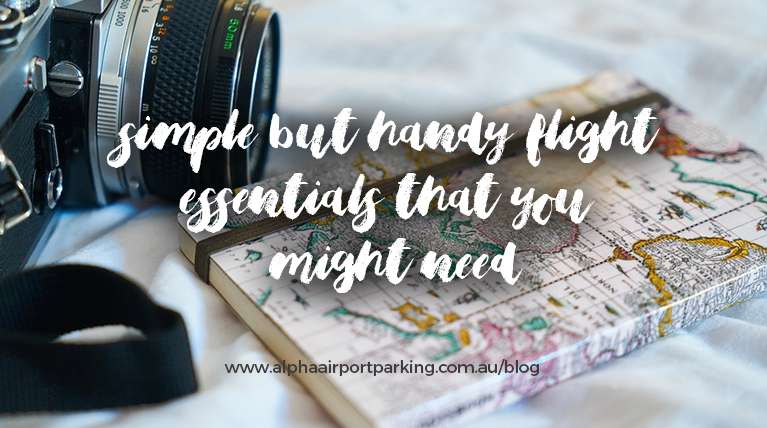There is only a week left before your well-deserved holiday and you’re incredibly excited. You are planning itineraries, deciding on what to wear for your holiday, booking accommodations, desperately trying to figure out how to pack light for your holiday, and even booking a cheap car rental or cheap airport parking. Then you come across one vacation tip (whether from your mate or the internet) that gets you thinking, “I should get travel insurance.”
Travel insurance is one of those things that hardly anyone ever thinks about, even on a holiday. But it’s also one of those things that insurance companies just love to just shove down your throat.
This is not to say that travel insurance is useless. In fact, with everything that can go wrong, travel insurance doesn’t seem like such a bad idea at all. It’s all a matter of having a little know-how on the basics of travel insurance, and getting the right type to suit your trip.
The Basics of Travel Insurance
These days, you can find insurance for practically anything. But the first step in knowing which one is right for you is getting through the 6 basic coverage options that people get:
- Accommodations during delays
- Trip interruption and cancellation
- Loss, damages, and delays in baggage
- Flight insurance for serious accidental injuries or loss of life
- Emergency medical and dental care
- Emergency medical evacuation
You can probably find policies that supplement very specific concerns like political evacuation for places of unrest. Yay! They thought of every possible scenario so time to swipe the card, right?
Stop.
Put down that credit card.
Now, before you go crazy and get everything; let’s go through a few things first. Know that policies and packages differ from state-to-state, country-to-country, and even company-to-company. You don’t need to get the all-inclusive package if you know you won’t need it. If you do enough research, you’re bound to find bundles or combinations that would be more suited for your needs at the time of your travels. Most insurance companies even sell insurance “a la carte” if you only need one type. Let’s say you already have medical and health insurance. If your existing insurance basically covers the same things as the medical coverage you’d be getting from travel insurance, then you might want to skip the expense.
Take note that some travel insurance companies, especially trip cancellation coverage, only reimburse you for your expenses. You’d still have to pay out-of-pocket, then go through the paperwork to get back your money. Medical insurance is a little easier since they tend to pay for hospital and/or doctor bills directly.
Just remember to ALWAYS READ THE TERMS AND CONDITIONS and look for the fine print. When in doubt, call your insurance company for clarification.
Limitations & Premiums
I know I’ve already mentioned this, but I cannot stress enough how your should always, always, always read the T’s and C’s and check the fine print. Don’t think that just because you got medical insurance means that you’re set no matter what happens. The same goes for your luggage. Even if you’re covered for loss and damage, there are still circumstances when insurance won’t cover you. Here are a few of the most common travel insurance exclusions or insurance limits:
Pre-existing medical conditions
Especially if you don’t declare your condition, they won’t cover you. But you do have a buying window. As long as you get medical coverage right when you book your trip, and make the medical condition claim within (usually) 15 to 21 days of your first deposit on the trip; there’s a chance that they’ll actually have you covered. Any time after that, and any future claims would most likely be automatically denied.
Disease outbreaks
Planning to travel for a cause? Hold your horses. If you’re expecting your medical insurance to cover for every little sickness you may get in a foreign land, you have to make sure that you don’t catch a quarantinable outbreaks like bird flu or swine flu.
Age
Like most health insurance services, travel insurance policies have age limits. The good news is that most policies have premiums for retirees and senior travellers.
Negligence. Substances
Any injuries you get while under the influence of alcohol or any illegal substance will not be covered. Any self-inflicted injuries will not be covered. Loss, theft, or damages of your belongings and/or money because of unattended baggage will not be covered. Try as hard as you can but there’s no working around this. BE SMART AND PAY ATTENTION.
Extreme sports
If you’re jumping off a cliff or plane, riding a board of some sort, gliding through the air or water in high velocities, or even hunting for game: you will not be covered. But that doesn’t mean that you can’t do all the fun, cool things like parasailing and bungee jumping. Just know that you have to pay a premium for adventure travel.
Preexisting Hurricanes
If you’re one of those people who fly out to places like the Carribbean during “off peak” (and by “off peak” I mean storm season) to save money, then you’re probably expecting that you won’t be getting any insurance. Again, we go back to the fine print in the insurance and how they define things like “hurricanes”. If you dig deep enough, you’d probably find an insurance company that will still cover you during hurricane season, as long as the storm headed your way doesn’t have a name yet. Hint hint.
War
Your regular policy most likely coverpolicy most likely covers war, riots, or civil unrest of any sort. If you’re traveling somewhere that’s on the brink of unrest, get a Cancel For Any Reason coverage. It costs more than your regular travel insurance, but it ensures that you’ll be able to recover a percentage of what you spent, and you can cancel for any reason without needing to explain why. Although you won’t recover everything you’ve spent, getting partial is still better than getting nothing at all.
Expensive belongings
If you’re bringing jewelryjewellery, research equipment, camera equipment and other expensive things, you’re going to want to get a separate insurance for them. Covers are limited to a specific amount. Trust me, I learned that the hard way.
So in a nutshell, travel insurance is definitely something for you to consider. Just make sure you check the T’s and C’s and fine print for any sneaky limitations, and consider paying for premiums if you’re going to go all out in your holiday. Safe Travels!







88 Comments
Comments are closed.